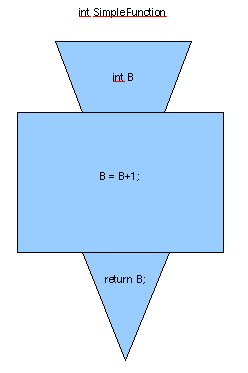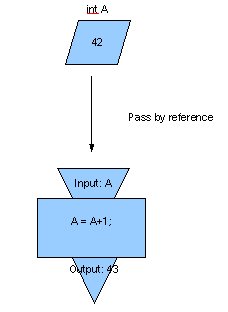| MASS |
An
integer corresponding roughly
to weight on planet Earth, in pounds, multiplied by 10. |
| SIZE |
/include/size_types.h |
| RESPIRATION_TYPE |
/include/respiration_types.h |
| BODY_TYPE |
/include/body_types.h |
 This
is your typical simple function.
It
This
is your typical simple function.
It At the top of this
illustration you see a variable called "A".
At the top of this
illustration you see a variable called "A".